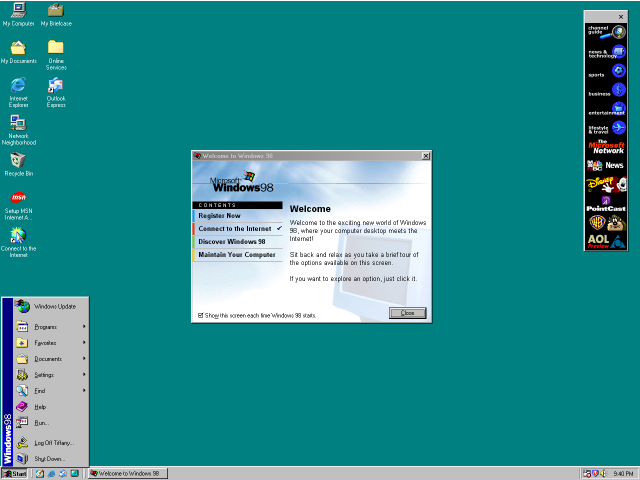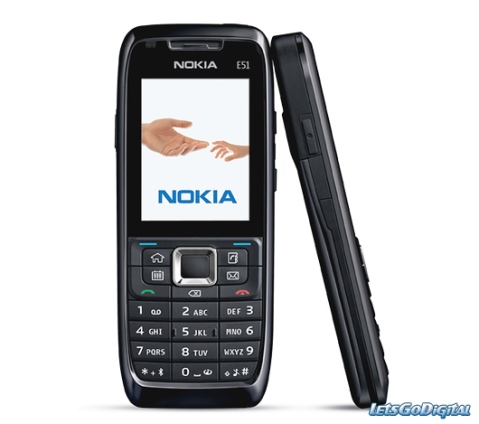Macha
The problem with tech "is dead" hysteria
It seems every week there are people claiming that yet another area of computing is dead. IE6, Windows, netbooks, desktop apps, the list goes on. Yet 9 times out of 10 these proclamations are very premature. Because while power users normally use the latest and greatest of everything, ordinary users don't. Ordinary users don't use n-1 either. Ordinary users use whatever was on their computer when they got it. Fine. Most people know that.
But then the problems start. How old is an old computer? One that came with Windows XP? (and these are non-technical users -they are using Windows) I'm sure most reading this would agree that that is an old computer. No one would use anything older than that, surely?

People actually still use this.
Think again. As someone who regularly fixes the computers of "non-computer people", I frequently encounter PCs running Windows XP SP1, Windows ME, and even Windows 98. These are users who can't run the newest versions of apps. Or the versions before them. Or often even the versions before them. Surely they'd buy a new computer then? Nope, they're still happily using that copy of Office 2000 they were given with the PC. Now, I will admit that "computers needing to be fixed" is obviously going to highlight the older ones still hanging around more than just picking some at random, but it can't invent old computers out of thin air, either.
So what happens when their computer goes up in smoke? Well, first they send it to their computer nerd friends, or a PC repair store. If it's still irreparable without extra money, they will buy a new one, and that's one less old computer for us to deal with.
So, a new computer nowadays will come with Windows 7 preloaded. And despite all the new features, the basics of Windows usage haven't changed much since Windows 95. The start menu button might be circular, but it's still in the bottom left. The text names off the programs in the taskbar have been replaced by pictures. The windows are a bit rounder and more colourful. Nothing that would trip any of us up.
But then... We have those like my dad. He "can't understand this Vista stuff", coming from XP. He still uses an old, slow Windows XP laptop over the new Windows 7 desktop. I managed to finally move him away from IE6 to IE8. He still misses IE6's "easiness". His average use pattern consists of MS Word, Facebook and Outlook Express. He did an ECDL course as part of his job. ECDL for those who haven't done it, is a computer course that teaches MS Office, Windows and IE.

Attempts at moving these people from their preferred apps is futile. They learned how to use one program, and they're going to continue using that one. You won't get them using OpenOffice, which is as close to MS Office as you'll get without being it, so trying to get them to use iWork, for example, is futile.
Now, moving aside from my dad, and keeping with the Apple theme, let's look at a device that has spawned a lot of "is dead" articles: the iPad. Depending on who you ask, the iPad will be responsible for the demise of everything from the netbook all the way up to the entire personal computer industry. But on it's release, the device was woefully underpowered for any heavy usage. But then a theory came about: The iPad wasn't for us, the heavy computer user, it is for the average Joe. After all, it is far simpler, so should be easy for people who aren't good with computers to use, right? Wrong. As I've already mentioned, the difference between XP and Vista are enough to confuse some people.

It's certainly less different than this, but apparently, everybody is going to use these.
Even apart from that, do you really think those people looked at the iPad and thought anything more than: "Oh, another gadget"? A significant amount of people I know won't use anything other than the "dumb" Nokias. Why? Because that's what they've always used, and that's what they are used to. Because of this, if you try and sell the iPad to them as like a computer, they won't want it, because it's not Windows. If you try and sell it to them as like a phone, they won't want it, because it's not Nokia. If you try and sell it to them as an middle device, they won't want it, because they'll see it as an expensive unneeded gadget. The fact that Apple had to impose a two iPad per customer limit during pre-orders shows exactly who is buying them, and the amount of Apple fanboys and gadget nerds, even when combined, is still finite.
Oh, and you can play WoW and The Sims on netbooks. You can't do that on an iPad. Those two games have a very large number of players, many of which use their computer for little other than those games and Facebook.

Yet people still use these, and even older models.
Let's look at another "is dead" example, that of desktop apps. The apparent killers here are web apps. After all, if you look at my typical day's computer usage, it includes Google Reader, Gmail, Brizzly, Google Calendar, Pidgin, Vim, Eclipse, Rhythmbox - Oh, look, the last 4 are desktop apps. Desktop apps with no web app of equal quality to match them. And, they're not likely to reach it for some time. Even Joe Hewitt, who quit iPhone development, believes it to be better than web development. I wonder how much time and effort it would take to recreate programs like Photoshop, or Visual Studio in the browser. The best online image editor I could find, still doesn't achieve feature parity with Paint.NET, which it is obviously inspired by. Google Docs and what I've seen of Office Web Apps don't reach the features of OpenOffice, never mind MS Office on the desktop.

Huge Progress? Undeniably. Equivalent to a desktop app? Not at all.
Another problem with web apps is the web designers' old enemy, IE6, which is also allegedly dead, yet still has 20% of the market share. Where is it coming from? Those users with Windows 98, ME and 2000, who actually can't upgrade (even to Firefox, or Chrome). And of course, corporations who won't upgrade anything without everything being tested and examined three times over.
Some of these users have even been reached by the messages many web designers are putting on pages telling IE6 users to upgrade. I got asked by one teacher who has been seeing these more and more, how he would go about upgrading his browser. The computer ran Windows ME. I had to give the advice that he would need to buy a new computer. I hate telling people that, because most of them don't want to spend €400 on a new computer, unsurprisingly.
I could just search the web for tech "is dead" posts, and go on through this for every widely used technology that's been said to be dead, but people reading this would get bored around 2000 words in, with only one fifth of things that have been said to be dead covered. But these few examples should hopefully remind people that tech doesn't just die and go away that easily.